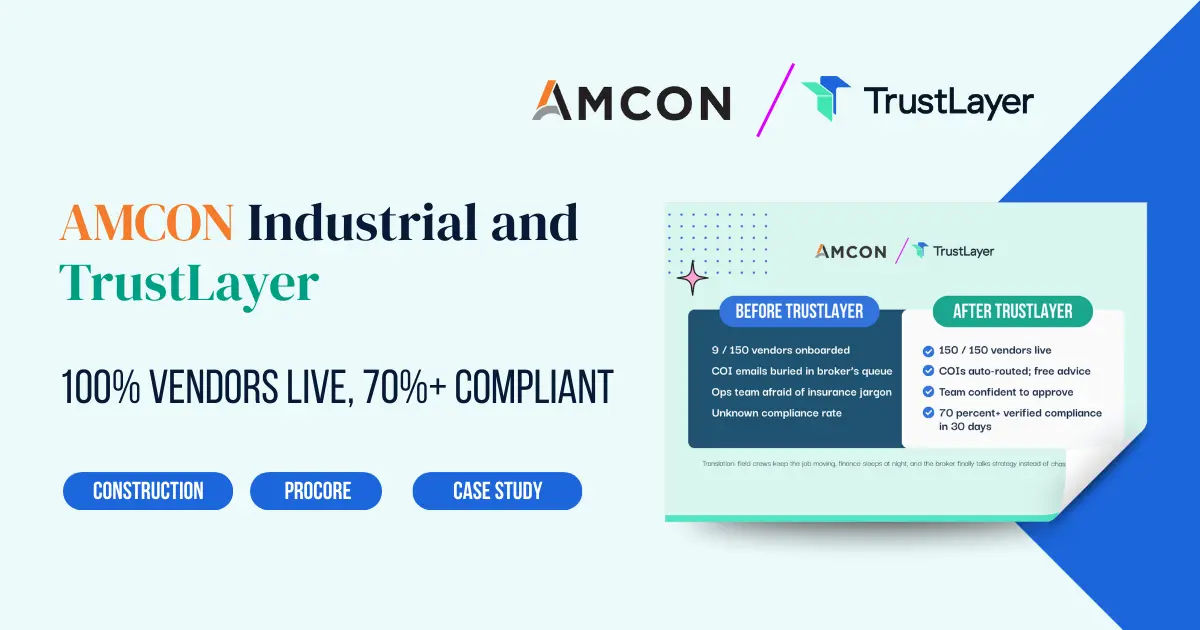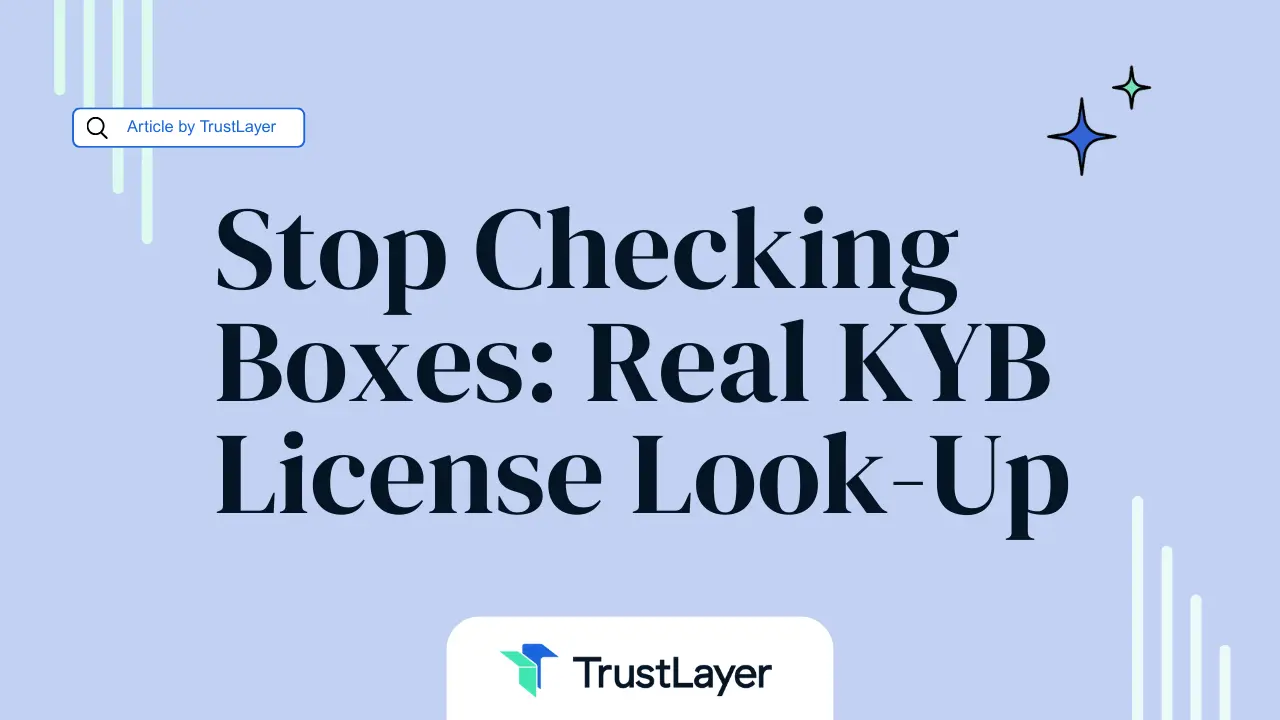Essential Audit Practices for COI Tracking Success
In an era of increasing complexity in business transactions and partnerships, ensuring a robust system for tracking Certificates of Insurance (COIs) is essential. This article delves into the importance of COI tracking, the audit practices necessary for maintaining compliance, and how to effectively measure the success of your auditing processes.
Understanding the Importance of COI Tracking
Certificates of Insurance serve as crucial documentation that verifies that a business holds the necessary insurance to mitigate risks. These documents are not merely procedural; they can save organizations from significant liabilities in contractual disputes or incidents. According to a study by the Risk Management Society, over 55% of organizations encounter challenges with missing or expired COIs, which can expose them to unforeseen risks.
Defining COI (Conflict of Interest)
Though COI can commonly refer to "Conflict of Interest," in this context, it pertains to Certificates of Insurance. A COI is a document that outlines the types of insurance coverage a business has and certifies that it meets the contractual obligations specified by its partners or clients. It typically includes information about the insured party, policy limits, coverage dates, and types of coverage.
The Role of COI in Business Operations
COIs have significant implications for business operations, especially risk management and due diligence. Clients and partners often require proof of coverage to protect them in case of accidents, property damage, or other liabilities. Provide valid COIs to maintain relationships and allow participation in lucrative contracts.
Furthermore, approximately 75% of businesses assert that up-to-date COIs can boost credibility and foster stakeholder trust. This fosters a more secure business landscape in which companies can confidently engage with one another. In addition to enhancing trust, a well-maintained COI tracking system can streamline operations. By automating reminders for renewals and tracking compliance, businesses can reduce the administrative burden associated with manual tracking, allowing teams to focus on core activities rather than paperwork.
Moreover, the importance of COIs extends beyond mere compliance; they play a pivotal role in risk assessment and management strategies. By reviewing the insurance coverage of partners and vendors, organizations can identify potential gaps in coverage that may pose risks to their operations. This proactive approach safeguards the business and promotes a culture of accountability and transparency, which is increasingly valued in today’s interconnected marketplace.
Key Audit Practices for Effective COI Tracking
Establishing effective audit practices is vital for managing COI efficiently. These practices streamline the tracking process and ensure businesses comply with regulatory requirements.
Regular Auditing: A Necessity for COI Tracking
Regular auditing of COIs is crucial to mitigate risks and ensure all insurance requirements are met. According to the National Association of Insurance Commissioners, nearly 60% of organizations that conduct annual audits experience fewer insurance-related incidents than those that do not.
Scheduling quarterly or monthly audits can help review the COIs on file, identify expired or missing documents, and ensure adherence to compliance standards. This proactive approach enhances oversight and ensures that risk is managed effectively across the board. Furthermore, regular audits create a culture of accountability within the organization, encouraging all stakeholders to prioritize compliance and stay informed about their responsibilities regarding COIs.
Leveraging Technology in COI Auditing
In today’s digital age, using technology solutions can significantly enhance the effectiveness of COI tracking. Automated systems can help manage the vast amounts of data associated with various COIs, allowing for real-time updates and alerts regarding expiration dates and compliance requirements.
Companies like TrustLayer provide robust solutions that allow businesses to consolidate documents in one accessible location, making it easier to conduct audits and maintain an accurate repository of COIs. Embracing technology reduces the chances of human error and enables organizations to maintain higher compliance standards. Additionally, integrating advanced analytics into COI tracking systems can offer valuable insights into trends and patterns, allowing organizations to make informed decisions about risk management and insurance coverage. This data-driven approach enhances operational efficiency and empowers businesses to adapt to changing regulatory landscapes with agility and confidence.
Overcoming Challenges in COI Auditing
While effective auditing is essential, various challenges can arise during COI tracking. Identifying and addressing these obstacles is crucial for maintaining a smooth auditing process.
Identifying Common Obstacles in COI Tracking
Common obstacles often include inconsistencies in data entry, miscommunication between departments, and manually tracking numerous policies. Studies have shown that over 47% of businesses experience these issues, which can lead to compliance failures or increased liability exposure.
The sheer volume of COIs associated with multiple vendors or contractors can lead to confusion. For example, organizations often deal with hundreds of COIs at any given time, making it easy for documents to get misplaced or neglected, particularly during busy periods. This situation is exacerbated when different departments utilize varying systems for tracking COIs, leading to discrepancies and potential lapses in compliance.
Strategies for Efficient Problem-solving in COI Auditing
To overcome these challenges, organizations should establish clear protocols for who is responsible for collecting and reviewing COIs. Regular training sessions that emphasize the importance of accurate data entry can significantly reduce errors.
- Centralized Repository: Create a centralized digital repository for all COIs. This will minimize redundancy and ensure ease of access.
- Automated Reminders: Implement an automated reminder system to track expiration dates.
- Regular Training Programs: Conduct regular training to keep stakeholders informed about changes in compliance requirements.
Additionally, technology can play a pivotal role in streamlining the COI auditing process. Software solutions designed specifically for compliance management can automate many tedious tasks associated with COI tracking. These platforms often include real-time data analytics, providing insights into trends and potential risks and allowing organizations to address issues proactively before they escalate.
Furthermore, fostering a culture of transparency and accountability within the organization can significantly enhance the effectiveness of COI audits. Encouraging open communication among departments ensures everyone is on the same page regarding compliance requirements. This collaborative approach helps identify potential conflicts of interest early on and reinforces the importance of ethical practices across the organization, ultimately contributing to a more robust compliance framework.
Ensuring Compliance in COI Tracking
Compliance with regulatory requirements is paramount in COI auditing. Understanding these requirements can help businesses operate effectively within the legal framework.
Understanding Regulatory Requirements for COI Auditing
COIs must adhere to state and federal guidelines that ensure adequate insurance coverage for business activities. Regulations vary significantly based on industry, so staying informed about changes is vital. For instance, industries such as construction and transportation often have more stringent insurance requirements than others. In addition to these industry-specific regulations, businesses must also be aware of local laws that may impose additional requirements, such as specific coverage limits or mandatory types of insurance. Keeping abreast of these evolving regulations can be a complex task, but it is essential for mitigating risks associated with non-compliance.
Failure to comply with these regulations can result in heavy fines or legal repercussions. Companies must proactively understand the specifics of these regulations to ensure that their COIs meet all requirements. Furthermore, engaging with legal counsel or compliance experts can provide valuable insights into these regulations' nuances, helping businesses navigate the often intricate landscape of insurance compliance.
Maintaining Compliance Through Effective Auditing
Establishing a structured auditing process is essential for maintaining compliance. Regular audits allow organizations to swiftly identify and rectify discrepancies before escalating into more significant issues. This proactive approach safeguards the organization against potential legal challenges and enhances its reputation among clients and stakeholders who prioritize compliance and risk management.
Moreover, utilizing platforms like TrustLayer enhances compliance capabilities by ensuring that all insurance certificates are up-to-date and accurately documented. Continuous monitoring and re-evaluation of COIs also foster a culture of accountability and diligence. By integrating technology into auditing, companies can streamline their operations, reduce human error, and create a more transparent system for tracking compliance. This technological integration can also facilitate more accessible access to historical data, allowing businesses to analyze trends and make informed decisions about their insurance needs and risk management strategies.
Measuring the Success of COI Auditing
Once you’ve implemented your COI tracking system, measuring its success is essential to ensure continuous improvements and effective risk management.
Key Performance Indicators for COI Auditing
Determining the effectiveness of your COI auditing should rely on specific key performance indicators (KPIs). Some vital KPIs include:
- Percentage of COIs renewed on time.
- Number of discrepancies identified during audits.
- Average time taken to resolve non-compliance issues.
These metrics highlight the efficiency of your auditing process and identify areas that require attention. A separate analysis suggested that organizations with a transparent COI tracking system could enhance their compliance rates by upwards of 30%.
The Impact of Successful COI Auditing on Business Performance
Implementing effective COI auditing practices can have a marked impact on overall business performance. Businesses reduce risk exposure by effectively managing insurance documentation, building stronger client relationships, and significantly enhancing credibility.
Moreover, a successful COI tracking system demonstrates a commitment to professionalism and due diligence. Studies indicate that organizations practicing thorough auditing experience fewer claims and enhanced customer trust and retention rates, ultimately improving bottom lines.
Integrating advanced technologies such as artificial intelligence and machine learning into COI auditing can further streamline the process. These technologies can quickly analyze vast amounts of data, identifying patterns and anomalies that may not be immediately evident to human auditors. This proactive approach mitigates risks and allows organizations to stay one step ahead of potential compliance issues, fostering a culture of accountability and transparency.
Furthermore, the benefits of successful COI auditing extend beyond mere compliance; they can also enhance an organization’s reputation in the marketplace. Companies that prioritize ethical practices and demonstrate their commitment to risk management are often viewed favorably by stakeholders, including investors, clients, and regulatory bodies. This positive perception can increase business opportunities and partnerships, reinforcing the importance of a robust COI auditing framework in achieving long-term strategic goals.
In summary, COI tracking is critical in today’s business environment, necessitating an effective auditing process to mitigate risks and ensure compliance. By embracing technology, overcoming challenges, and measuring success, organizations can secure a competitive edge while protecting their interests. The journey may be complex, but the rewards significantly outweigh the challenges.
Ready to elevate your COI tracking and ensure compliance with ease? TrustLayer is your partner in modern risk management, offering a best-in-class solution that automates the tedious tasks of document collection, storage, and verification. Say goodbye to the administrative burden of manual processes and embrace a forward-leaning approach that saves time and money. Join the hundreds of thousands of companies that have streamlined their COI tracking with TrustLayer. Set up a time to talk with our team and discover how we can help you build a better way to manage risk.








.png)





